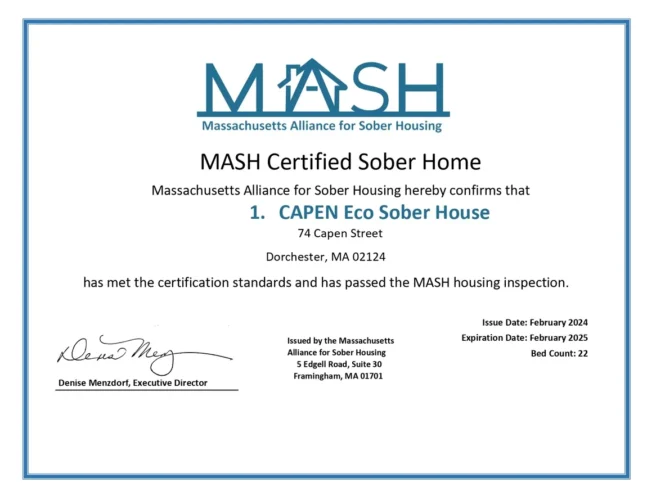
Explore your state’s substance use counselor requirements to see if our program will work for you or contact our Admissions Counselors and they can answer any questions you may have. Substance abuse counselors must be good listeners with strong empathy and the ability to set boundaries. Once you have completed your supervised experience, you can apply for a counseling license in your state.
What does a substance abuse counselor do?

As an accredited institution of higher learning, our integrated addiction counseling programs include coursework in mental health and co-occurring disorders. While requirements vary by state, Hazelden Betty Ford’s certified addiction counselor training programs are some of the most widely respected in the country. Requirements may include degree type, curriculum, number of credits, accreditation, clinical experience, internships, and exams. It’s important to distinguish between the various types of positions that are often referred to as “counselors” in the area of substance abuse and addictions therapy. Each treatment center has a unique set of staff titles that are created by their human resources departments. It’s crucial to remember that statistical data on earnings and pay for substance abuse and addictions counselors may represent the average for all positions, for all organizations, and/or for those who have master’s or Ph.D. degrees.
What are the potential career paths with CADC certification?

Being familiar with substance abuse counselor requirements by state can help eliminate licensing issues later. Certified alcohol and drug counselor (CADC) certification must be maintained throughout your career. You can contact your state licensure or certification board directly with any questions.
How Do Substance Abuse Counselors Help People?
CADC professionals are trained to assess and diagnose substance use disorders, develop effective treatment plans, and conduct both individual and group therapy sessions. They play a critical role in the recovery process by supporting individuals in overcoming addiction and maintaining sobriety. Here we’ll take you step by step through becoming a substance abuse counselor—from earning your addiction counseling degree to getting licensed or certified in your state.

Advance to a Master’s Degree
Earning an addiction counseling degree online is ideal for students with substantial work or family requirements. Substance abuse counselors are included under the wider umbrella of addiction counselors, who typically must be licensed to practice. Licensure ensures that counselors have the skills, knowledge, and experience to provide quality treatments for addictions in clinical settings. Substance abuse counselor requirements tend to vary more by state than other professional counseling roles. This guide provides the typical steps to licensure and clarifies state requirements for substance abuse counselor licensure and certification with a detailed table.
- Some states require certification or licensure, which may involve passing an exam and gaining supervised clinical experience.
- This particular experience criterion stems from the tenet of the original 12-Step Program for alcoholics that only an alcoholic in sobriety can assist another alcoholic in sobriety.
- Establish a grounded understanding of the social and psychological factors related to addiction and best practices for addiction treatment.
Strategic Prevention Technical Assistance Center (SPTAC)
It should be noted that counselors possessing graduate degrees often report earning more money than those who lack such degrees. Substance addiction therapy is a type of counseling that can be used to assist individuals in overcoming substance dependencies, including those involving alcohol and drugs. CACREP is the Council for Accreditation of Counseling & Related Educational Programs. Nearly every state requires counselors to have a graduate degree from a CACREP-accredited institution. Embarking on a journey to become a Certified Alcohol and Drug Counselor (CADC) is a commendable decision that reflects a commitment to improving lives and addressing the challenges of substance abuse. As you have seen throughout this guide, the path to becoming a CADC is structured and requires dedication, from obtaining the necessary education to passing the certification exam and continuing professional development.
Substance abuse counseling helps individuals develop the skills they need to navigate life without relying on drugs or alcohol. It also encourages clients to build a strong support network, whether through continued therapy, group counseling, or family involvement, all of which are critical to long-term success. Whether someone is battling drug abuse, alcoholism, or another type of substance addiction, counseling plays a critical role in guiding them toward recovery. Counselors are trained to offer support, encouragement, and practical strategies to help their clients regain control over their lives.
Counselors for drug substance abuse counseling addiction may assist people in dealing with these issues by guiding clients away from substance abuse. People can overcome their addictions with the aid of experts in this profession, start making better decisions, and live healthier lives. The Hazelden Betty Ford Graduate School educates future leaders in addiction counseling who provide evidence-based integrated care for substance use and co-occurring disorders. Once you gain the necessary training and experience, you’ll have many professional options. Additionally, some substance abuse and addictions counselors might opt to start their own private clinics. Substance abuse and addictions counselors often work in the settings of correctional institutions, schools, social and human care agencies, and hospitals.
Job Outlook and Salary for CADC Certified Professionals
- As you have seen throughout this guide, the path to becoming a CADC is structured and requires dedication, from obtaining the necessary education to passing the certification exam and continuing professional development.
- As an accredited institution of higher learning, our integrated addiction counseling programs include coursework in mental health and co-occurring disorders.
- Nearly every state requires counselors to have a graduate degree from a CACREP-accredited institution.
Employment in these fields is projected to increase by 18% from 2022 to 2032, much faster than the average for all occupations. This growth is largely driven by increased awareness of mental health issues and the ongoing need to provide services to those struggling with addiction and other behavioral challenges. For prospective students aiming to become Certified Alcohol and Drug Counselors, choosing the right degree program is crucial. These programs not only provide the foundational knowledge required for certification but also offer specialized training tailored to the needs of substance abuse counseling.
Disorders Due to Substance Use and Addictive Behaviors
For more details on certification and licensure requirements, you can visit the National Certification Commission for Addiction Professionals (NCC AP). Advanced certifications and degrees can open up further opportunities in program management or clinical supervision. Several states have started recognizing the need for master’s-degree-level addiction counseling licensure and certification. But there are other reasons a graduate program is your best option if you’re looking for a long-term career in the substance use disorder (SUD) counseling field. You will gain valuable real-world experience working with highly qualified counselors.
